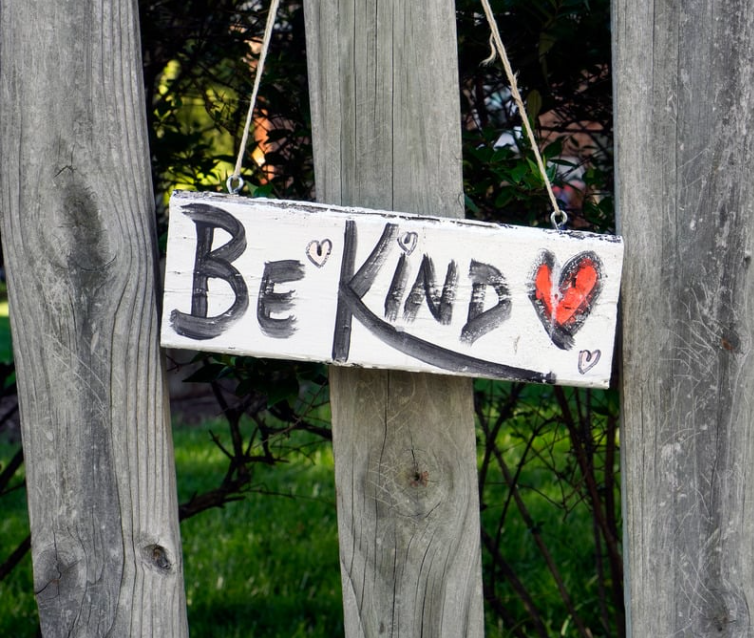(and why you shouldn't do it)
Self-violation in the name of self-preservation
As a highly sensitive person, I’m intentional about the environment I allow myself to exist in. I’ve learned to say yes and no to opportunities based on how they feel in my gut. I don’t seek chaos or unnecessary drama. I like peace, and I like alignment. But life doesn’t always ask for permission. Sometimes, no matter how grounded you try to be, you end up dealing with people who are having a very bad day—and who are determined to make it yours, too.
One of the places this shows up most is, I believe, in customer-facing jobs. The people whose work is to serve, help, fix, or solve. The checkout assistant, the travel agent, the waiter, the receptionist, to name a few.
We all know someone like this. Maybe you are someone like this.
And if you are, you’ve probably learned how to get through the day without letting other people’s attitudes break you. But let’s be honest: that’s survival. Not resilience. That’s a nervous system shutting down, not rising above the situation.
What Happened to People?
I grew up in a world where humans did everything. Real people behind the checkout tills. Real people at the train station, at the bank. You stood in queues, you spoke to someone, and maybe you even exchanged a smile. There was effort involved, sure—but there was also human connection.
Today, much of that has been replaced by automation. Everything is faster, easier, more efficient… until it’s not. Until the moment something breaks or glitches or doesn’t go as expected. And then, when people finally reach the one real human still working in that system, they unload.
Not just their complaint. Their anger, their entitlement, their lack of patience. And so begins the chain reaction: one person’s inconvenience becomes another person’s emotional injury.
Let me tell you about someone close to me. Let’s call him Ted.
Ted, and the Slow Death of Empathy
Ted works as a travel booking agent. Twenty years ago, people like him made a decent living. Customers relied on them. They were helpful, appreciated, necessary.
Today, most people book their holidays online. There are price comparison sites. Apps. Discount deals and DIY packages.
So when someone calls now, they’re usually not excited. They’re already frustrated because something’s gone wrong—the deal didn’t go through, the website glitched, the price changed mid-checkout—and by the time they reach Ted, they’re ready to explode. He’s the one who picks up the call. He’s the one they shout at. He’s the one they hang up on. And yet, Ted keeps showing up. I asked him how he copes.
“Oh, I don’t mind it. I got used to it,” he said.
“I used to cry a lot, but now I just get on with it.”
“I need this job. I need the money. So I do what I have to do.”
Pause. Let that land.
“I used to cry a lot.” and “but I got used to it.”
The look in his eyes says it all. It does bother him, and he would rather not have to go constantly through this. That’s not okay. That’s a trauma he has learned to cope with.
The more Ted talked, the clearer it became: people train themselves to accept abuse. Not because they’re weak, but because they’re trying to survive. It’s self-preservation at the cost of self-respect. And over time, the body learns not to react. The soul goes quiet. The heart toughens. But it doesn’t make the hurt go away.
The person who was rude to Ted likely forgot about that interaction five minutes later. Ted will replay it all weekend. And likely go through it again.
Don’t Be the Person Who Trains Their Brain to Accept Abuse
One of the saddest parts of this whole cycle is how normal it’s become to expect disrespect—and to teach yourself to endure it quietly. Wear it like a badge of sorts, “I know the likes of you, Susan, and I do not care anymore.”
We get so used to putting up with rudeness, shouting, unfair blame, and coldness, that our nervous system stops reacting. We tell ourselves, “That’s just how it is.” We numb out the pain instead of addressing it. We lower our standards for how others treat us—and for how we treat ourselves.
But please know this: you don’t have to accept abuse to survive.
You can set boundaries—even small ones. You can recognise when something doesn’t feel right and say no, or walk away, or ask for support.
Training yourself to accept abuse is not strength. It’s self-violation disguised as self-preservation. You deserve better than that.
If you’re feeling stuck in this pattern, take a moment today to remind yourself that your dignity matters. Your emotional and energetic health matters. And you have the power to say enough.
Questions to Ask Yourself
When you feel overwhelmed, drained, or mistreated, pause and check in with yourself by asking:
- Does this feel safe? Am I physically and emotionally safe in this moment?
- Does this feel okay? Am I comfortable with how I’m being treated right now?
- Is it true? Is what this person is saying or doing actually true and valid, or is it their frustration being projected and catastrophising?
- Is it me? Is this situation really about me, or is it about something the other person is going through?
These questions help you step out of autopilot and reclaim your awareness. They’re not about blaming yourself, but about reconnecting to your truth and your needs, and may help you to reinforce an important message: one person's bad moment does not define your day.
How to Address Abuse in the Moment
It’s not always easy to speak up, especially if you rely on the interaction (for your job, service, or wellbeing). But setting boundaries can be done gently, firmly, and with integrity.
Try saying something like:
“I want to help, but I can’t do that if we’re not speaking respectfully.”
“I understand you’re upset. Let’s try to find a solution together.”
“I’m here to support you, but I need us both to communicate kindly.”
“I’m happy to listen, but I can’t continue this conversation if the tone stays this way.”
Using “I” statements focuses on your experience, not on blaming the other person. It invites cooperation instead of conflict.
Remember: you don’t have to tolerate disrespect to be helpful.
You can protect your energy and show compassion.
Practice this as a way to keep your boundaries clear, your nervous system regulated, and your heart open.
How Not to Be the Arsehole
(A short list for people who are tired, human, and want to do better)
1 - Pause before you react
That person on the other end likely didn’t build the broken system. They’re just trying to help. So speak to them, acknowledge that they are not responsible for your frustration. Find your humanity and dial down your frustration.
2 - Treat every interaction like it matters
Even if it’s “just” a quick call or checkout—those micro-moments build our collective culture. Be part of the kindness.
3 - Don’t save your best self for the people who benefit you
It’s easy to be nice to your boss or your date. But how do you speak to the call centre rep? The barista? The cleaner?
4 - Acknowledge good service when you see it
A genuine “thank you” or “you’ve been really helpful” might be the only kind word they hear all day. It matters more than you think.
5 - Teach your children (and remind yourself)People are not robots. People are not beneath you. People are not the enemy. They are human beings with their own stories and struggles.
Final Thought
We shouldn’t have to thicken our skin just to get through the day. We shouldn’t feel the need to train ourselves to accept cruelty as normal. We shouldn’t allow a culture where disrespect is so casual it goes unnoticed.
Be kind. Be better.
And if you’ve been the person on the receiving end of it all— Please know you deserve better.

